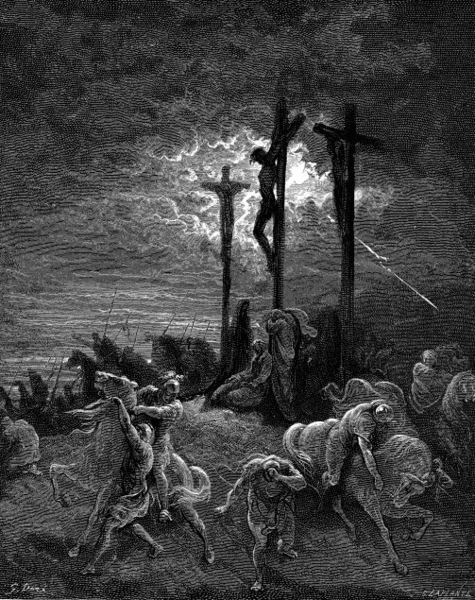
Sixty years ago, Martin Luther King, Jr. said, “Hate begets hate; violence begets violence; toughness begets a greater toughness. We must meet the forces of hate with the power of love… Our aim must never be to defeat or humiliate the white man, but to win his friendship and understanding.” King’s words are as true today as they were in 1958 for people of every color and creed.
It has been claimed that the ultimate inspiration for King’s claim is found in Jesus’ words: “Put your sword back into its place. For all who take the sword will perish by the sword” (Matthew 26:52; ESV). Jesus was speaking to Peter who in the attempt to defend Jesus from those who had come to arrest him cut off the ear of the high priest’s servant with his sword (Matthew 26:51). While this text may serve as inspiration for King, the whole of Jesus’ life serves as inspiration. Jesus did not hate his enemies, but died for them (Romans 5:10), even asking his Father to forgive those mocking him when he was hanging on the cross (Luke 23:34). For Jesus and King, hate begets hate whereas love begets love. As King declares, “Returning violence for violence multiplies violence, adding deeper darkness to a night already devoid of stars. Darkness cannot drive out darkness; only light can do that. Hate cannot drive out hate; only love can do that.”
In addressing violence, Jesus is never content to go after physical acts of violence alone. He addresses the anger and hostility that arises from the heart and the hateful speech that follows: “You have heard that it was said to those of old, ‘You shall not murder; and whoever murders will be liable to judgment.’ But I say to you that everyone who is angry with his brother will be liable to judgment; whoever insults his brother will be liable to the council; and whoever says, ‘You fool!’ will be liable to the hell of fire” (Matthew 5:21-22; ESV).
The greatest victims of hatred and violence who do not allow violence to victimize them but reach out victoriously in love are often our greatest teachers. Such is the case with the Jewish Jesus and the African American King. Following a devastating week of deplorable hate crimes that killed Jewish and African American people with guns and threatened the lives of numerous others with pipe bombs, we can draw strength to respond proactively rather than reactively in our own spheres of relationship by taking to heart Jesus’ and King’s words.
Some will abuse the freedom of speech to rail against their political and ideological opponents in the attempt to defeat and humiliate them. Jesus and King certainly challenged their opponents, not to demean, mock and destroy them, but to call them out to win them over to the kingdom of heaven and beloved community. Paul operated similarly. He instructs the church in Rome: “If possible, so far as it depends on you, live peaceably with all” (Romans 12:18; ESV).
Jesus calls on his followers to love their enemies and pray for those who persecute them:
You have heard that it was said, “You shall love your neighbor and hate your enemy.” But I say to you, Love your enemies and pray for those who persecute you, so that you may be sons of your Father who is in heaven. For he makes his sun rise on the evil and on the good, and sends rain on the just and on the unjust. For if you love those who love you, what reward do you have? Do not even the tax collectors do the same? And if you greet only your brothers, what more are you doing than others? Do not even the Gentiles do the same? You therefore must be perfect, as your heavenly Father is perfect (Matthew 5:43-48; ESV).
Most everyone loves those who love them. Most everyone loves those who belong to their biological or ideological tribe. But to love one’s enemies moves us beyond moral tribalism and evolutionary biology to revolutionary spirituality.
Jesus uttered these words in his Sermon on the Mount in the wilderness. He lived his entire life in the moral wilderness, as he called his followers not to stockpile guns and the ammunition of hate, but crosses to carry that signified enemy love. Jesus and his true disciples resist violence with shalom at every turn. Such is true of Jesus’ disciple King, who lived in the moral wilderness of increasing hate bound up with the Vietnam War abroad and racial and economic violence at home. The incredible documentary King in the Wilderness presents King doubling down in the war against racism, economic exploitation and violence in the last few years of his life.
What about us? Do we make it our life ambition to prove others wrong and ourselves right, to humiliate those who oppose us, or if possible, as far as it depends on us, live peaceably with all, and seek to win them over with friendship and understanding? Do we stockpile hate or love? Our chosen course of action all starts in the heart and mind. If we are wise, it will begin and end with free speech that flows from open and empathic ears and hearts. “Know this, my beloved brothers: let every person be quick to hear, slow to speak, slow to anger” (James 1:19; ESV).












